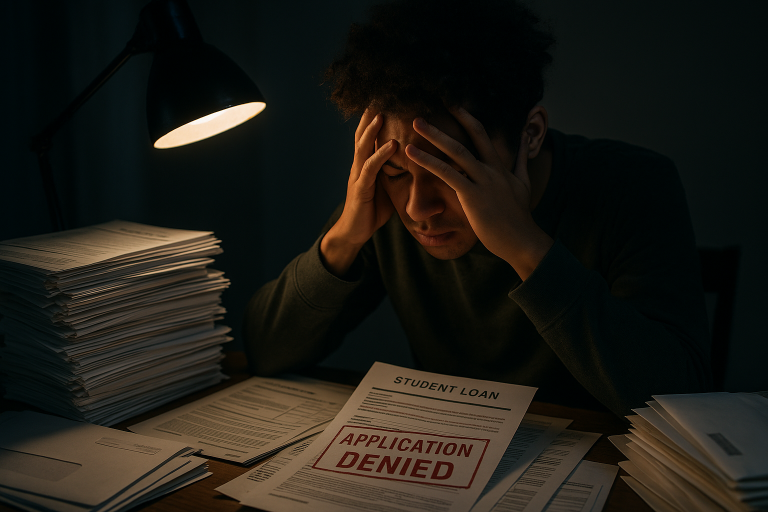Credit cards have revolutionized the way we handle finances, offering convenience and flexibility for purchases both online and offline. However, their ease of use can sometimes lead to unintended consequences, particularly when it comes to debt accumulation. Uncontrolled credit card usage can result in a debt cycle that's difficult to break free from. In this article, we'll delve into the art of responsible credit card usage and provide essential strategies to steer clear of the debt trap.

Understanding Credit Cards and Debt
Credit cards are financial tools that allow you to borrow money up to a certain limit for various transactions. They provide a convenient way to make purchases, but they also come with the potential for overspending and accumulating debt. Many individuals find themselves ensnared in a debt cycle, where they struggle to make minimum payments, leading to mounting interest charges and a cycle that seems impossible to escape.
The Debt Cycle: How It Happens
The debt cycle typically starts innocently enough – with a single purchase. Over time, as more purchases are made and the balance grows, the minimum payment becomes the norm. This minimum payment often covers just a small fraction of the outstanding balance, allowing interest charges to accrue on the remaining amount. This situation is further exacerbated if more purchases are added to the card, and soon, the debt snowball gains momentum. As interest compounds, the balance balloons, and a sense of helplessness takes hold.
Tips for Responsible Credit Card Usage
Choosing the Right Credit Card
Before delving into credit card usage, it's crucial to select a card that aligns with your financial goals and habits. Compare factors like annual fees, interest rates, and rewards programs. If you tend to carry a balance, opt for a card with a lower interest rate to minimize interest charges over time.
Budgeting and Planning
Creating and sticking to a budget is a fundamental step in managing credit card usage. List your sources of income and all monthly expenses, ensuring that you allocate a portion of your budget for credit card payments. This prevents overspending and ensures that you're consistently paying down your balance.
Paying on Time and in Full
The cardinal rule of credit card usage is to pay your balance in full and on time every month. By doing so, you avoid interest charges and late fees. Credit card interest rates are notoriously high, so even a small balance can quickly balloon if left unpaid.
Monitoring Your Credit Score
Your credit score is influenced by your credit card usage. Regularly monitor your credit score using free online tools to ensure it's on track. A good credit score not only reflects responsible financial behavior but also qualifies you for better terms on loans and mortgages.
Avoiding Cash Advances
Cash advances may seem like a quick fix for financial emergencies, but they come with exorbitant fees and high interest rates. Instead, explore alternatives like using an emergency fund or seeking assistance from friends and family.
Limiting the Number of Cards
Having multiple credit cards can lead to overspending and confusion. Stick to a manageable number of cards that you can easily monitor and control. Each card should serve a purpose and be used responsibly.
Being Wary of Minimum Payments
Paying only the minimum amount due might seem like a relief, but it prolongs your debt repayment journey. The bulk of your payment goes toward interest, leaving the principal balance largely untouched. Aim to pay more than the minimum whenever possible to expedite debt repayment.
Regularly Review Statements
Frequently reviewing your credit card statements serves a dual purpose. First, it helps you track your spending patterns and catch any unauthorized transactions early. Second, it reinforces a sense of financial awareness, prompting you to make mindful decisions.
Emergency Fund Preparation
An emergency fund acts as a safety net during unexpected financial setbacks. Strive to build an emergency fund equivalent to three to six months' worth of living expenses. This fund prevents you from relying on credit cards to cover unforeseen costs.
Navigating Financial Setbacks
Despite our best efforts, financial setbacks can still occur. If you find yourself struggling to manage credit card debt, consider seeking professional help. Credit counseling agencies can provide tailored advice and strategies for regaining control of your finances.
Conclusion
Navigating the world of credit cards requires a delicate balance between convenience and financial prudence. By choosing the right credit card, budgeting effectively, paying on time, and being vigilant about your credit score, you can harness the benefits of credit cards while sidestepping the pitfalls of the debt cycle. Remember, the path to financial freedom starts with informed choices and disciplined financial behavior.
FAQs After The Conclusion
Can I completely avoid credit card debt? While it's challenging to avoid credit card debt entirely, responsible credit card usage can significantly minimize your debt and its impact on your financial well-being. By paying your balance in full each month and using credit cards strategically, you can maintain control over your finances.
What's the quickest way to improve my credit score? The quickest way to improve your credit score is to consistently pay your bills on time, including credit card payments. Additionally, reducing your credit card balances and refraining from opening multiple new accounts can have a positive impact on your credit score.
Are all credit cards the same when it comes to interest rates? No, credit cards can have varying interest rates based on factors such as your credit history and the type of card. It's essential to compare and choose a card with a competitive interest rate, especially if you anticipate carrying a balance.
Can I use my credit card for building an emergency fund? While credit cards can provide a temporary solution for unexpected expenses, it's not advisable to solely rely on them for building an emergency fund. Instead, focus on setting aside a dedicated savings fund to cover unforeseen financial challenges.
Is it better to use a debit card instead of a credit card? Using a credit card offers more benefits than a debit card, including rewards, purchase protection, and the opportunity to build credit. However, it's crucial to use credit cards responsibly and avoid overspending to prevent falling into the debt cycle.


